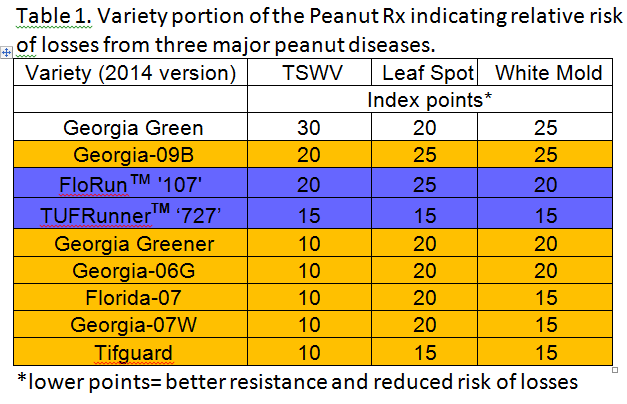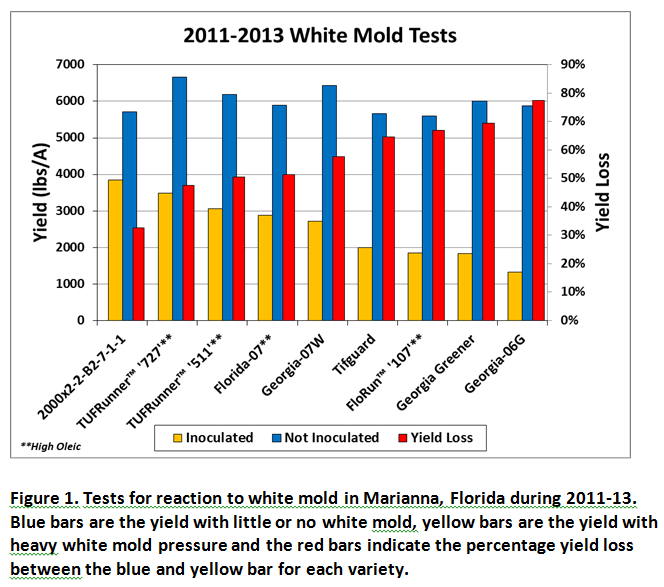 Two new peanut varieties, FloRunTM ‘107 and TUFRunnerTM ‘727’, from the University of Florida will be available for planting in 2014. Both varieties were selected for high oleic oil chemistry, as well as disease resistance for high yield potential.
Two new peanut varieties, FloRunTM ‘107 and TUFRunnerTM ‘727’, from the University of Florida will be available for planting in 2014. Both varieties were selected for high oleic oil chemistry, as well as disease resistance for high yield potential.
High oleic peanuts have been naturally selected for a higher level of a healthier monounsaturated fatty acid called “oleic acid,” the same monounsaturate found in olive oil. The high oleic peanuts contain about 80% oleic fatty acids, compared to about 50% in most peanut varieties. University of Florida research has shown that high oleic peanuts, as part of a low-fat diet, have the potential to help lower “bad cholesterol ” or LDL blood cholesterol levels. The high oleic peanuts also have much longer shelf life. The key difference is that monounsaturated fats are significantly less susceptible to oxidation than polyunsaturated fats. Oxidation is the main cause of rancidity or off-flavor in peanuts.
Seed of FloRunTM ‘107, released in 2010 from UF/IFAS, should be readily available from several major peanut seed companies. FloRunTM ‘107’ is a high oleic, runner type peanut with very good yield potential, good quality grades, and a medium runner seed size. Because the seed size of FloRunTM ‘107’ is smaller than the varieties widely grown in 2013, growers should be able to save on planting costs. It has moderate resistance to tomato spotted wilt virus and white mold, with a prostrate growth habit, a prominent center stem and light green foliage.
Released in 2012, TUFRunnerTM ‘727’ seed will only be available in limited quantities from several peanut seed companies. Its seed size is smaller than the popular Georgia-06G, but larger than FloRunTM ‘107’. TUFRunnerTM ‘727’ has very good yield potential, excellent quality grades, and very good disease resistance. On the Peanut Rx scale, it is rated 15 points for leaf spot, tomato spotted wilt virus and white mold, which is among the best overall disease resistance available (Table 1 above). It has especially good resistance to white mold, which is one of the most costly to control. Under very heavy white mold disease pressure, TUFRunner TM ‘727’ lost about 50% of its yield potential compared to about 80% loss for Georgia-06G (Figure 1 below). It produces a large bush with a prominent center stem.
These two varieties should help satisfy the peanut industry’s demand for high oleic peanuts, while delivering competitive yield potential for peanut farmers.
- FloRun™ ‘725’ – A New High Yielding, Disease Resistant Peanut Variety - April 4, 2025
- Don’t Lean Too Hard on Your Peanut Variety for Disease Resistance - June 28, 2024
- ‘Arnie’ – A New Peanut Variety Released by the University of Florida - February 2, 2024

